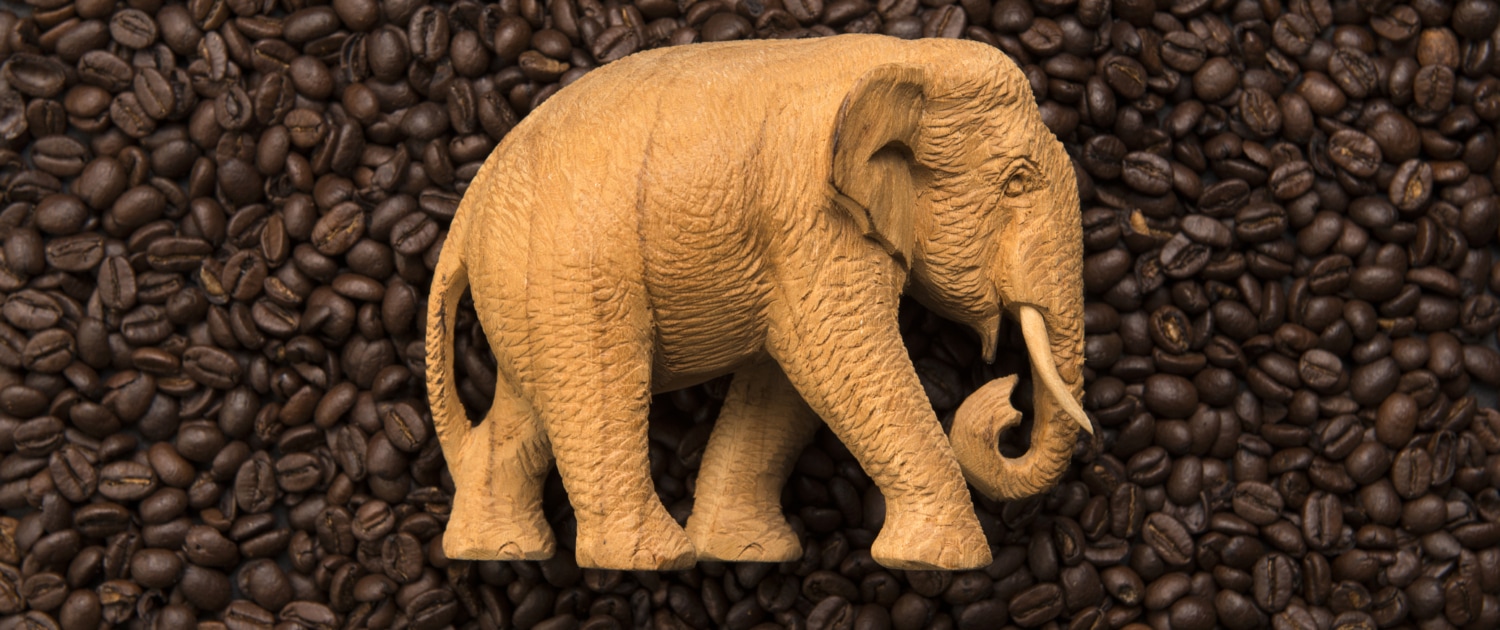Elephant coffee
– The new luxury coffee – How great is it? –
What’s the deal with elephant dung coffee?
There are trends that come and go. Some are more memorable and fascinating than others.
The elephant dung coffee is one of these phenomena preparing to stay for a long time.
This very unique coffee is also known as black ivory coffee. It is a new trend in the stream of cuppa-joe crazes. It is yet to be seen if elephant dung coffee will outlast the caramel macchiato.
In general, elephant coffee boasts a delectable chocolate and slightly floral aroma. Which is underlined by a cherry-chocolate taste. This already sounds very delicious and interesting to learn more about.
Many coffee lovers and connoisseurs find its flavor profile very appealing.
However, it is the process itself by which this very unique coffee is made. This is certainly most interesting.
To sum up, the coffee beans are eaten by elephants. Then, they are digested and pooped out again.
Just the idea of it makes elephant dung coffee very unusual and worth to further explore.
Most Expensive Coffee
Throughout the last decades, Kopi Luwak coffee was the most unique coffee brand.
The origin of elephant dung coffee is very likely inspired by the civet coffee phenomena. Kopi Luwak has become very popular over the last decades.
This is mainly due to its very special coffee process. It eventually became the most exclusive and most expensive coffee in the world.
But this is changing, now. Elephant dung coffee took over. This still very rare and exclusive product is the new big and hot coffee topic, nowadays.
There are still only very few products of elephant dung coffee available yet. If you can find it, like in our home country, namely Thailand, you will have to pay a high price.
How much is it really?
By now, elephant dung coffee and its black ivory product is already the most expensive coffee in the world. Currently, you can get it for around 50 US dollars per cup.
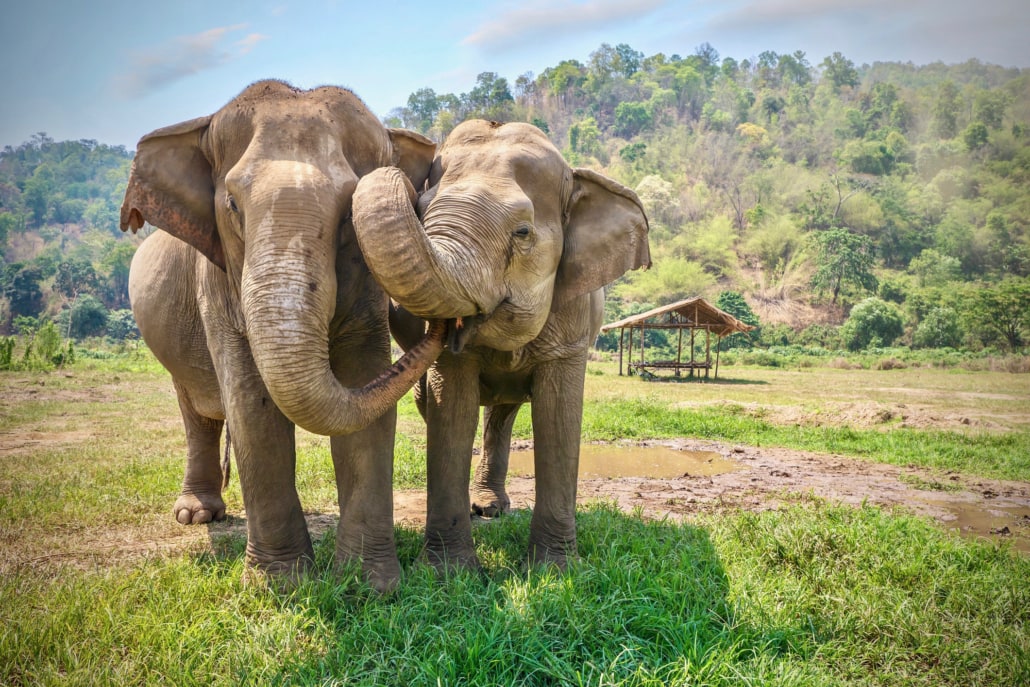
This would result in a total cost of 1.500 US dollar per kilogram.
In comparison, Kopi Luwak usually costs between 500 to 1.000 US dollars a kilogram.
Me and my colleagues at Siam Hills Coffee are still cautious with either actively promoting or criticizing this new product.
As for many things, there are great and some worrying aspects about it.
The rise of elephant dung coffee also has to do with Kopi Luwak coffee. Which is becoming more and more unpopular the same time.
Especially the treatment and exploitation of the civet jungle cat eating, digesting and eventually pooping out the coffee Kopi Luwak beans is more and more critically pointed out and discussed in public. We can totally agree with the criticism.
Therefore, Siam Hills Coffee is not recommending Kopi Luwak coffee at all anymore.
Of course, we also have concerns about the elephants eating, digesting and producing the elephant dung coffee.
All recent business owners, health and animal organizations are currently rather supporting than diminishing this new coffee trend.
For our own taste, there is still too little research and scientific knowledge available. Until now, there is still no real and complete overview to give a clear picture.
That is why we will only talk about it here. And, we will share the information and experience we were able to gather for you and ourselves.
You can decide what to think about it yourself then, of course.
What is elephant dung coffee?
The elephant coffee makers actually use very common or normal coffee. But this rather normal coffee will go through a not-so-typical production process.
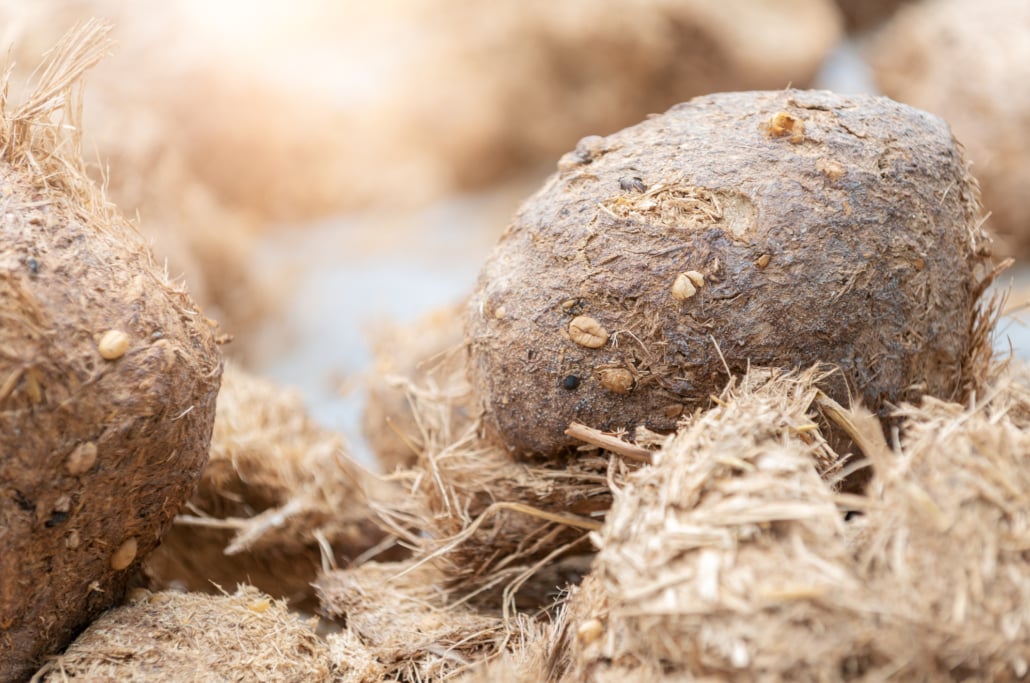
The end goal is to achieve the characteristic smooth and rich tones of this unique coffee variety. In order to get there, normal coffee beans are being fed to elephants.
Unlike humans or the famous Indonesian civet jungle cat, elephants are herbivores. They are animals that only eat plants.
The fermentation happening in their guts, as they break down cellulose, helps to remove the bitterness in the coffee beans.
After passing through the digestive tract of each elephant, the beans are then harvested. The process of harvesting sounds more advanced as it actually is.
Local farmers will manually or with the help of simple sorting machines separate the elephant’s poop from the digested coffee beans.
Additionally, all beans are thoroughly and maybe thankfully washed one more time. The next step is to let them dry. This usually happens by the natural drying process.
In other words, the beans will be spread out in open air and dried by the natural light and heat of the sun.
After the usual roasting and packaging is done. Coffee enthusiasts from all around the world can enjoy this special elephant dung coffee product.
The new black gold
The Canadian, Mr. Blake Dinkin, is undoubtedly the biggest name and undisputed founder of elephant dung coffee.
Dinkin found his inspiration when learning about the Kopi Luwak coffee. As we already learned, it is one of the most expensive coffees in the world.
Eventually, Dinkin reasoned that the larger digestive systems of elephants could easily produce more coffee. On top, the result will also possibly be better coffee beans than civets producing Kopi Luwak on the other hand.
After about a decade and many trials, Dinkin proves that using elephants in the coffee production process makes good, economically speaking sense.
Where are the elephants?
Currently, the majority of coffee-making elephants come from Thailand.
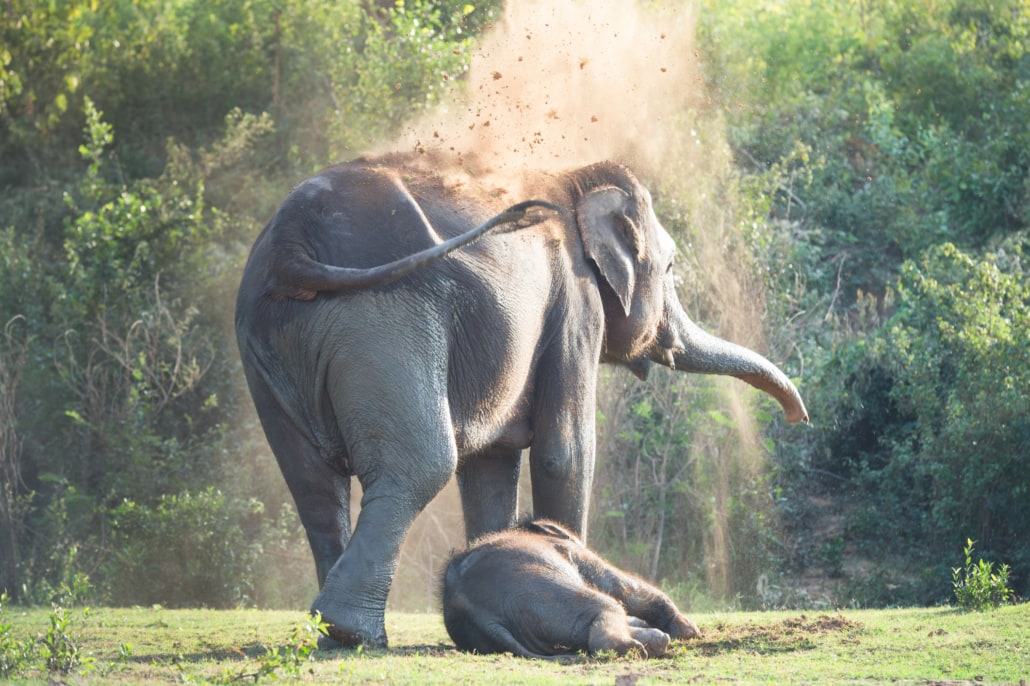
They live in a sanctuary in a remote part of north eastern Thailand, called Surin region. The village’s name is Ban Taklang. Just in case you would like to visit yourself one day.
Big shipments of mainly Thai Arabica coffee cherries are brought to the sanctuary on a regular basis.
These coffee cherries will then be mixed into a kind of fruit mash. After, the food is being fed to the elephants.
According to the caretakers, the elephants seem to like and enjoy the food mix. They quite willingly eat it without concern.
Why is elephant dung coffee so delicious?
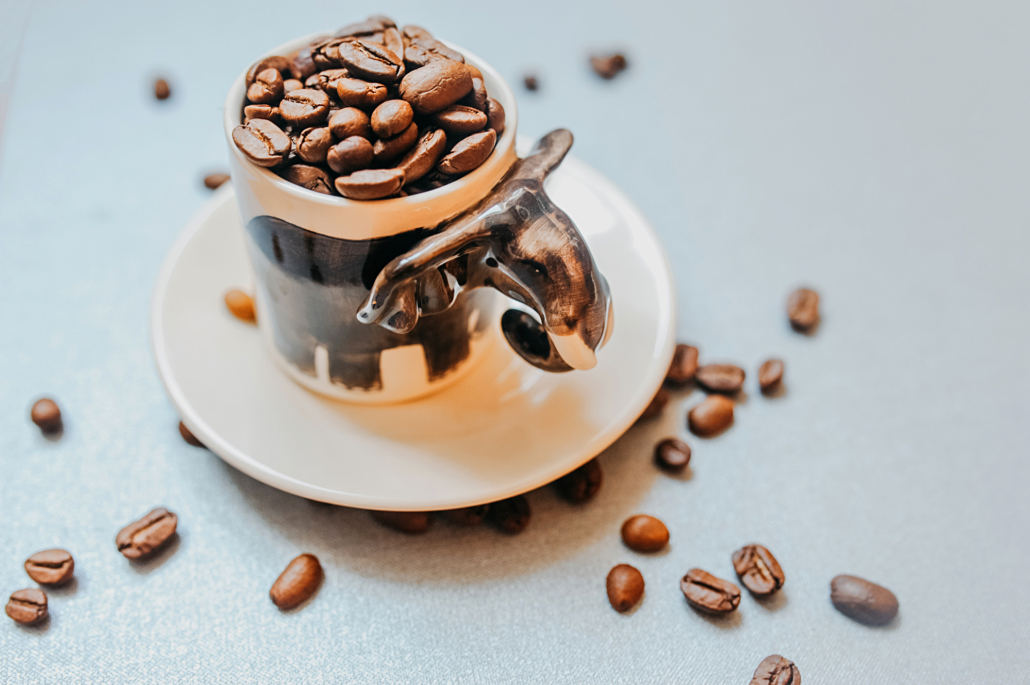
According to Dinkin, the coffee is so good, because of the natural fermentation process in the animals’ stomachs breaking down the proteins in the bean shells already.
The outcome is a very tasteful coffee brew.
You can experience notes of nuttiness, cherries, and even some chocolate undertones. There are even some people saying that the coffee is not just simply mild.
But, it is even as mild as some teas.
How about the elephants?
Do the coffee beans affect the elephants?
Now, this question or concern is probably one of the main thoughts when hearing about elephant dung paper for the first time. This is also the biggest concern for us at Siam Hills Coffee.
Especially since there is the increasing criticism surrounding Kopi Luwak Coffee. The treatment of animal coffee producers such as civets or elephants has to be taken seriously.
However and in contrast to the civet jungle cat, the stomachs of elephants seem to be more robust and suitable for digesting coffee beans in the first place.
The main reason is, because the beans pass through the elephants’ digestive tracts with their shells still intact. The rather harmful caffeine in these animal digestive systems remains locked inside the beans.
As a result, eating the beans and pooping them out does not appear to harm the elephants at all.
However, more fundamental research still needs to be done. And until then, we decide to not actively promote this special kind of coffee.
Why Thai elephants and not African?
In Africa, a majority of the elephants are simply too wild.
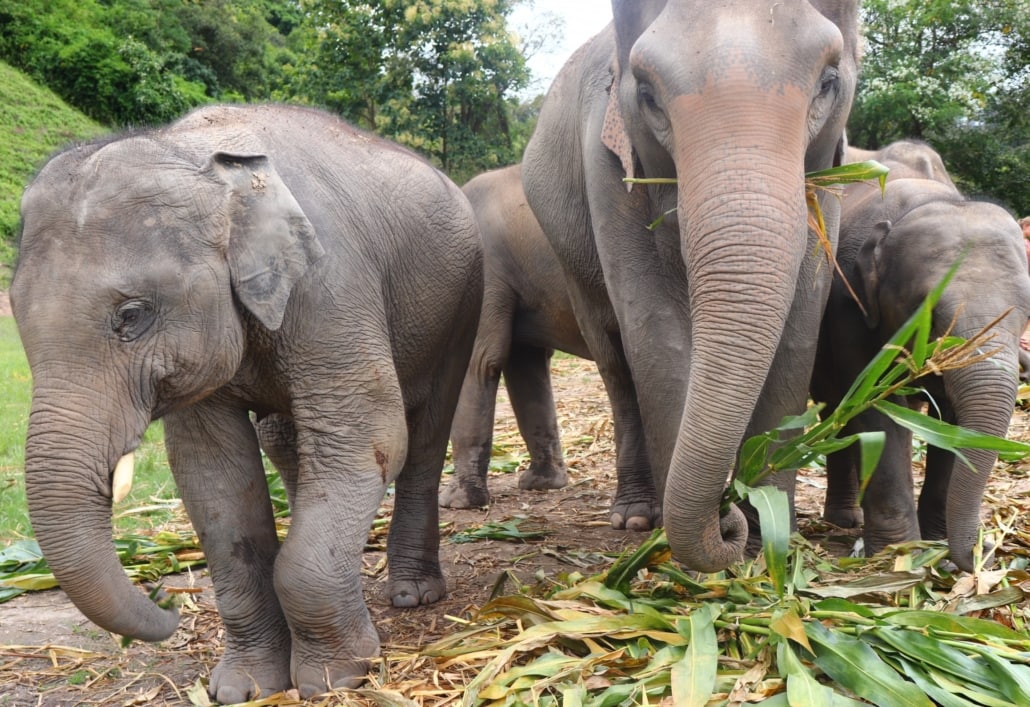
They are not mostly captive like in Asia. Dinkin eventually chose Thailand for many reasons.
Ethiopia might be the birthplace of coffee, but there are no elephants. When producing elephant dung coffee, safety and accessibility were the biggest concerns for him.
So, it had to be Asia. Preferably a country that grows Arabica coffee. Because Arabica coffee is superior to Robusta coffee, when it comes to taste and quality.
Dinkin wanted to eventually find a place where elephants are treated ethically. And, where there are enough elephants he could use for production. Thailand matched all of these criteria.
Additionally, Thailand is already producing good quality Arabica coffee.
In comparison to Sri Lanka for example, the quality of coffee was just not good enough. This was the same with Myanmar and Laos, as well.
Everything pointed to Thailand. It seemed to be the ideal starting ground for elephant dung coffee.
Dinkin first met with the Golden Triangle Asian Elephant Foundation. It represents a government-rated charity organization.
The elephant home place and environment they created is really beautiful and they deeply care for elephants. This was essential to further move forward.
There is also a lot of money for everyone involved, of course.
Elephant handlers collaborating with Dinkin had to understand and agree on certain values and work processes.
Do elephant handlers exploit their animals?
Unlike the civet cat, which produces Kopi Luwak, elephants are much bigger. These giant animals weigh between 1.500 to 2.000 kilos. And they can be very stubborn.
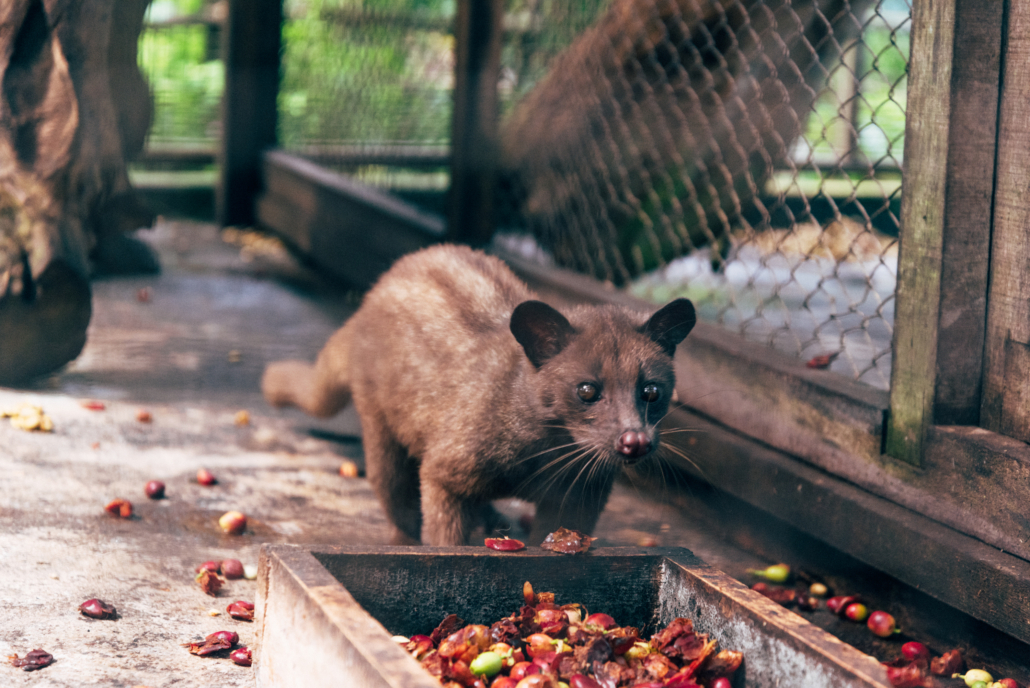
Luwak (civet cat) eating coffee bean : Luwak Coffee is the world most expensive coffee
This means, if they don’t want to eat, they will not do it. Elephants will just spit out the food again, sometimes even in your face.
Or, they just don’t allow you to ever give that kind of food again.
So, according to Dinkin, force-feeding is not a real issue.
In general and when we talk about ethics, it is a difficult question to ask. Because, there is science and then there is our own emotion.
Many people no longer support or care about riding elephants anymore.
The treatment of tourism-related elephants is very controversial. It is becoming more and more unpopular and especially publicly exposed through social media and the internet.
Dinkin just wants the elephants to be elephants. They can do what they are best at, namely eating.
Elephants eat about 10% of their body weight each day.
The elephant as an asset
Surin is a Northeastern province in Thailand. It is home to the Kuy people, who have been looking after elephants for more than 3.000 years.
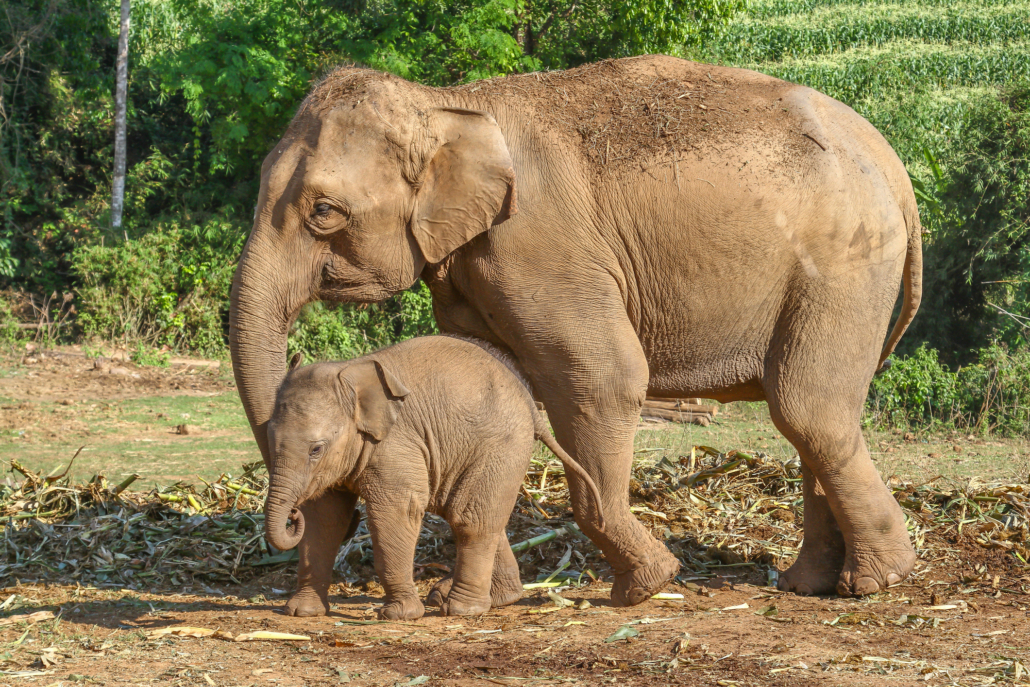
It is one of the poorest regions in all of Thailand. And, elephants are quite expensive to take care of.
Elephants eat roughly 18 hours every day. They only sleep for 3 or 4 hours. For many elephant owners, the animal is the only of biggest cost and asset by far.
To buy an elephant, you would have to pay around 1 or 2 million Thai Bhat. Of course, the elephant owners don’t want their assets to fall sick.
Because, Dinkin only works with elephants that are not babies, sick or already have a history of illness in general.
Dinkin’s coffee beans are eventually 1% of the total elephant’s diet. They do not get coffee beans every day and not all year around.
Each day, he is giving the elephant families a set quantity of coffee mixed with a set quantity of their favorite foods. According to him, he controls the food-intake. And, he knows every elephant in person.
Him and his staff exactly know how much they feed the elephants. They track the input and outcome on a daily basis.
Luckily and in reality, the elephant owners are not coffee experts themselves. There are also not coffee beans available in the Surin region itself.
They will not just go out and buy coffee cherries and force-feed their animals. Dinkin claims to be the only source.
Conclusion
Currently, it is still quite difficult to get your hands on some elephant dung coffee.
It is not a mass product and will probably never be. There will probably never be a mass production of around 200.000 kilos per year.
It would also be very challenging to find that many elephants, I suppose.
Nowadays, the total amount of production results in 800 to 900 kilogram per year. Elephant dung coffee will therefore remain an exclusive and expensive coffee experience.
You can mostly find it at 5 star luxury resorts all over Thailand.
Of course, the elephant coffee production place itself is also selling it directly via online order.
Dinkin wants his coffee to stay a niche, feel-good product.
Its taste is quite nice and can not be denied. The feel-good aspect about it is maybe a different story. At least, it is for us.
I am hoping that there will soon be more research about it. Until then, my own opinion about elephant dung coffee rather stays neutral, to be fair.
How about you? Would you like to try elephant dung coffee?
Do you maybe have any concerns about it?
Feel free to share your feedback, opinion or even professional knowledge with us.
Related Posts
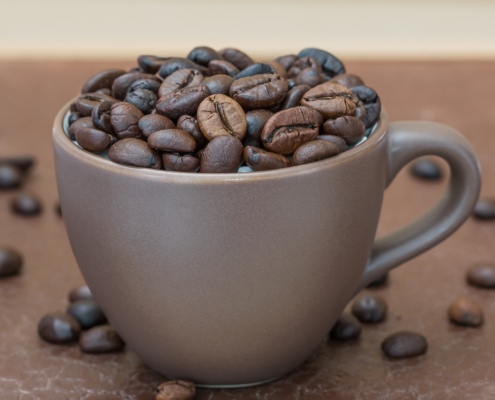 https://www.siamhillscoffee.com/wp-content/uploads/What-is-Liberica-Coffee-–-The-Worlds-Rarest-Coffee-Type-–-1.jpg
1384
2165
Siamhillscoffee
https://www.siamhillscoffee.com/wp-content/uploads/coffee-logo.png
Siamhillscoffee2021-04-25 11:33:222021-04-25 11:33:22What is Liberica Coffee – The World’s Rarest Coffee Type –
https://www.siamhillscoffee.com/wp-content/uploads/What-is-Liberica-Coffee-–-The-Worlds-Rarest-Coffee-Type-–-1.jpg
1384
2165
Siamhillscoffee
https://www.siamhillscoffee.com/wp-content/uploads/coffee-logo.png
Siamhillscoffee2021-04-25 11:33:222021-04-25 11:33:22What is Liberica Coffee – The World’s Rarest Coffee Type –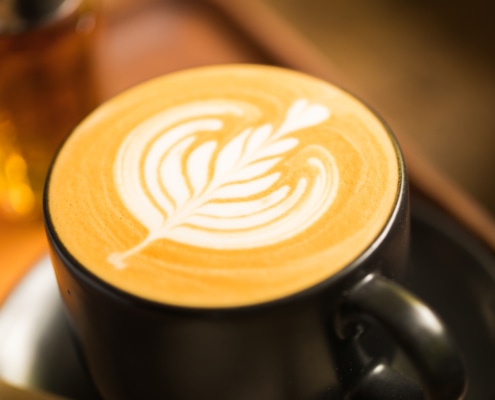 https://www.siamhillscoffee.com/wp-content/uploads/What-is-Latte-Art-–-Its-Fundamentals-History-and-Techniques-–-1.jpg
1414
2121
Siamhillscoffee
https://www.siamhillscoffee.com/wp-content/uploads/coffee-logo.png
Siamhillscoffee2021-04-25 11:28:272021-04-25 11:28:27What is Latte Art – Its Fundamentals, History and Techniques –
https://www.siamhillscoffee.com/wp-content/uploads/What-is-Latte-Art-–-Its-Fundamentals-History-and-Techniques-–-1.jpg
1414
2121
Siamhillscoffee
https://www.siamhillscoffee.com/wp-content/uploads/coffee-logo.png
Siamhillscoffee2021-04-25 11:28:272021-04-25 11:28:27What is Latte Art – Its Fundamentals, History and Techniques –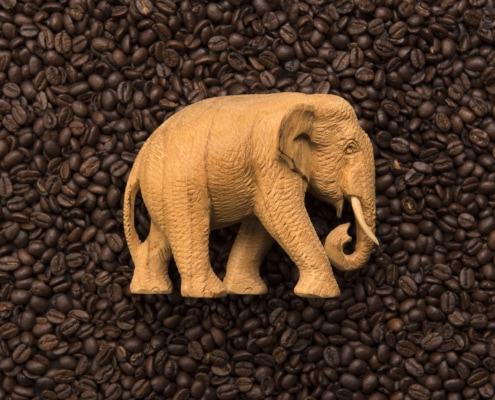 https://www.siamhillscoffee.com/wp-content/uploads/Elephant-coffee-–-The-new-luxury-coffee-–-How-great-is-it-1.jpg
1445
2075
Siamhillscoffee
https://www.siamhillscoffee.com/wp-content/uploads/coffee-logo.png
Siamhillscoffee2021-04-25 11:23:422021-04-25 11:23:42Elephant coffee – The new luxury coffee – How great is it?
https://www.siamhillscoffee.com/wp-content/uploads/Elephant-coffee-–-The-new-luxury-coffee-–-How-great-is-it-1.jpg
1445
2075
Siamhillscoffee
https://www.siamhillscoffee.com/wp-content/uploads/coffee-logo.png
Siamhillscoffee2021-04-25 11:23:422021-04-25 11:23:42Elephant coffee – The new luxury coffee – How great is it?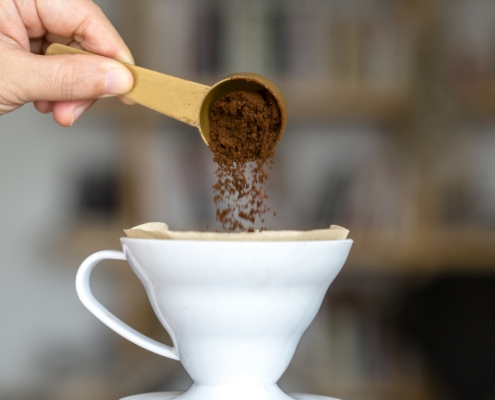 https://www.siamhillscoffee.com/wp-content/uploads/Filter-Coffee-and-Instant-Coffee-–-Whats-the-Difference-–-1.jpg
1414
2121
Siamhillscoffee
https://www.siamhillscoffee.com/wp-content/uploads/coffee-logo.png
Siamhillscoffee2021-04-25 11:15:412021-04-25 11:15:41Filter Coffee and Instant Coffee – What’s the Difference? –
https://www.siamhillscoffee.com/wp-content/uploads/Filter-Coffee-and-Instant-Coffee-–-Whats-the-Difference-–-1.jpg
1414
2121
Siamhillscoffee
https://www.siamhillscoffee.com/wp-content/uploads/coffee-logo.png
Siamhillscoffee2021-04-25 11:15:412021-04-25 11:15:41Filter Coffee and Instant Coffee – What’s the Difference? – https://www.siamhillscoffee.com/wp-content/uploads/Cappuccino-and-Latte-–-Whats-The-Difference-–-1.jpg
1399
2143
Siamhillscoffee
https://www.siamhillscoffee.com/wp-content/uploads/coffee-logo.png
Siamhillscoffee2021-04-25 11:05:382021-04-25 11:11:21Cappuccino and Latte – What’s The Difference –
https://www.siamhillscoffee.com/wp-content/uploads/Cappuccino-and-Latte-–-Whats-The-Difference-–-1.jpg
1399
2143
Siamhillscoffee
https://www.siamhillscoffee.com/wp-content/uploads/coffee-logo.png
Siamhillscoffee2021-04-25 11:05:382021-04-25 11:11:21Cappuccino and Latte – What’s The Difference –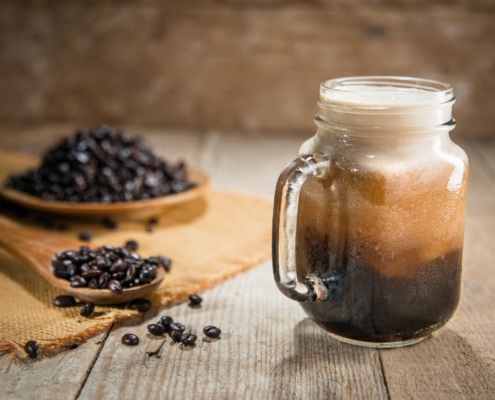 https://www.siamhillscoffee.com/wp-content/uploads/Nitro-Coffee-or-Regular-Coffee-Which-is-Better-–-1.jpg
1414
2121
Siamhillscoffee
https://www.siamhillscoffee.com/wp-content/uploads/coffee-logo.png
Siamhillscoffee2021-04-25 11:01:372021-04-25 11:01:37Nitro Coffee or Regular Coffee – Which is Better –
https://www.siamhillscoffee.com/wp-content/uploads/Nitro-Coffee-or-Regular-Coffee-Which-is-Better-–-1.jpg
1414
2121
Siamhillscoffee
https://www.siamhillscoffee.com/wp-content/uploads/coffee-logo.png
Siamhillscoffee2021-04-25 11:01:372021-04-25 11:01:37Nitro Coffee or Regular Coffee – Which is Better –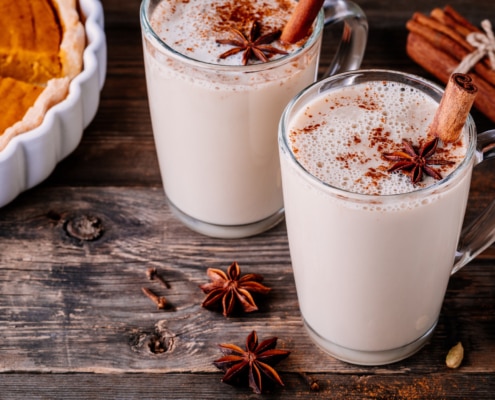 https://www.siamhillscoffee.com/wp-content/uploads/What-is-a-Dirty-Chai-or-Chai-Tea-Latte-–-A-Complete-Overview-–-1.jpg
1414
2121
Siamhillscoffee
https://www.siamhillscoffee.com/wp-content/uploads/coffee-logo.png
Siamhillscoffee2021-04-03 03:00:442021-04-03 03:00:44What is a Dirty Chai or Chai Tea Latte – A Complete Overview –
https://www.siamhillscoffee.com/wp-content/uploads/What-is-a-Dirty-Chai-or-Chai-Tea-Latte-–-A-Complete-Overview-–-1.jpg
1414
2121
Siamhillscoffee
https://www.siamhillscoffee.com/wp-content/uploads/coffee-logo.png
Siamhillscoffee2021-04-03 03:00:442021-04-03 03:00:44What is a Dirty Chai or Chai Tea Latte – A Complete Overview –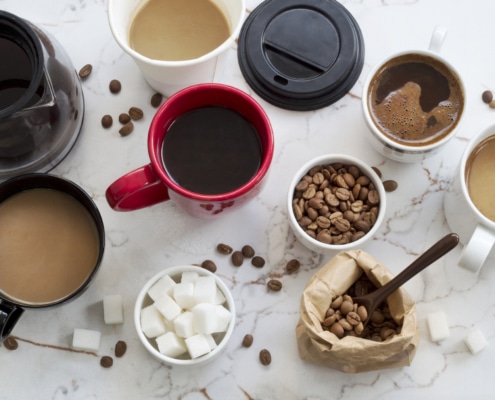 https://www.siamhillscoffee.com/wp-content/uploads/Filter-Coffee-and-Espresso-–-What-is-the-Difference-–-1.jpg
1397
2146
Siamhillscoffee
https://www.siamhillscoffee.com/wp-content/uploads/coffee-logo.png
Siamhillscoffee2021-04-03 02:55:042021-04-03 02:55:04Filter Coffee and Espresso – What is the Difference? –
https://www.siamhillscoffee.com/wp-content/uploads/Filter-Coffee-and-Espresso-–-What-is-the-Difference-–-1.jpg
1397
2146
Siamhillscoffee
https://www.siamhillscoffee.com/wp-content/uploads/coffee-logo.png
Siamhillscoffee2021-04-03 02:55:042021-04-03 02:55:04Filter Coffee and Espresso – What is the Difference? –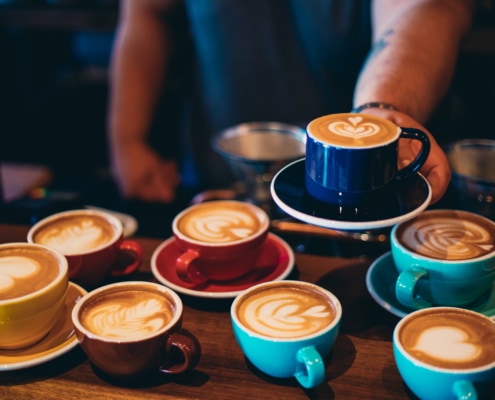 https://www.siamhillscoffee.com/wp-content/uploads/Cafe-au-Lait-and-Latte-–-Whats-The-Difference-–-1.jpg
1414
2121
Siamhillscoffee
https://www.siamhillscoffee.com/wp-content/uploads/coffee-logo.png
Siamhillscoffee2021-04-03 02:50:222021-04-03 02:50:22Café au Lait and Latte – What’s The Difference –
https://www.siamhillscoffee.com/wp-content/uploads/Cafe-au-Lait-and-Latte-–-Whats-The-Difference-–-1.jpg
1414
2121
Siamhillscoffee
https://www.siamhillscoffee.com/wp-content/uploads/coffee-logo.png
Siamhillscoffee2021-04-03 02:50:222021-04-03 02:50:22Café au Lait and Latte – What’s The Difference –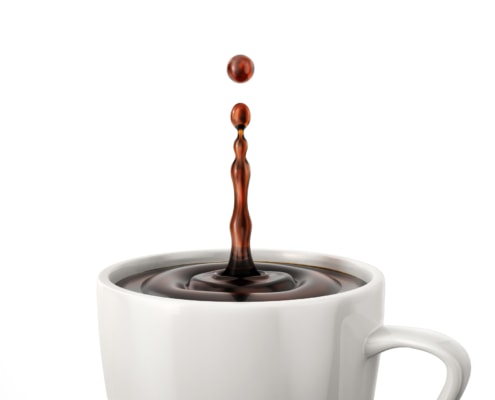 https://www.siamhillscoffee.com/wp-content/uploads/What-is-Red-Eye-Coffee-–-Everything-You-Need-to-Know-About-This-Eye-Opener-–-1.jpg
1414
2121
Siamhillscoffee
https://www.siamhillscoffee.com/wp-content/uploads/coffee-logo.png
Siamhillscoffee2021-03-21 04:01:332021-03-21 04:01:33What is Red Eye Coffee – Everything You Need to Know About This Eye-Opener –
https://www.siamhillscoffee.com/wp-content/uploads/What-is-Red-Eye-Coffee-–-Everything-You-Need-to-Know-About-This-Eye-Opener-–-1.jpg
1414
2121
Siamhillscoffee
https://www.siamhillscoffee.com/wp-content/uploads/coffee-logo.png
Siamhillscoffee2021-03-21 04:01:332021-03-21 04:01:33What is Red Eye Coffee – Everything You Need to Know About This Eye-Opener –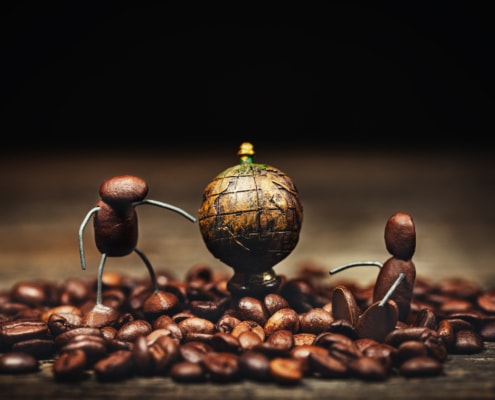 https://www.siamhillscoffee.com/wp-content/uploads/Top-10-Strangest-Coffee-Types-Beans-Special-Coffee-Experiences-–-1.jpg
1414
2121
Siamhillscoffee
https://www.siamhillscoffee.com/wp-content/uploads/coffee-logo.png
Siamhillscoffee2021-03-14 04:07:592021-03-14 04:07:59Top 10 Strangest Coffee Types & Beans – Special Coffee Experiences –
https://www.siamhillscoffee.com/wp-content/uploads/Top-10-Strangest-Coffee-Types-Beans-Special-Coffee-Experiences-–-1.jpg
1414
2121
Siamhillscoffee
https://www.siamhillscoffee.com/wp-content/uploads/coffee-logo.png
Siamhillscoffee2021-03-14 04:07:592021-03-14 04:07:59Top 10 Strangest Coffee Types & Beans – Special Coffee Experiences – https://www.siamhillscoffee.com/wp-content/uploads/What-is-an-Espresso-–-A-Complete-Guide-–-1.jpg
1414
2119
Siamhillscoffee
https://www.siamhillscoffee.com/wp-content/uploads/coffee-logo.png
Siamhillscoffee2021-03-14 03:48:102021-03-14 03:48:10What is an Espresso? – A Complete Guide –
https://www.siamhillscoffee.com/wp-content/uploads/What-is-an-Espresso-–-A-Complete-Guide-–-1.jpg
1414
2119
Siamhillscoffee
https://www.siamhillscoffee.com/wp-content/uploads/coffee-logo.png
Siamhillscoffee2021-03-14 03:48:102021-03-14 03:48:10What is an Espresso? – A Complete Guide –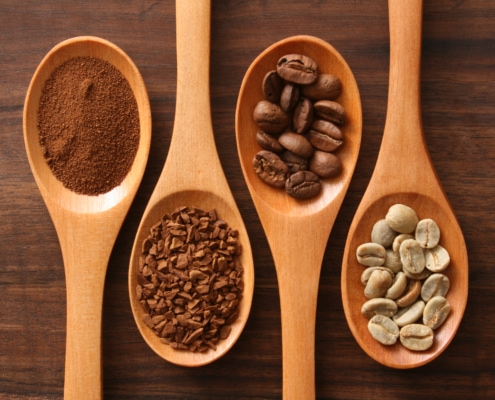 https://www.siamhillscoffee.com/wp-content/uploads/Top-6-Differences-Between-Ground-Coffee-And-Instant-Coffee-1-scaled.jpg
1920
2560
Siamhillscoffee
https://www.siamhillscoffee.com/wp-content/uploads/coffee-logo.png
Siamhillscoffee2021-03-14 03:40:432021-03-14 03:40:43Top 6 Differences Between Ground Coffee And Instant Coffee
https://www.siamhillscoffee.com/wp-content/uploads/Top-6-Differences-Between-Ground-Coffee-And-Instant-Coffee-1-scaled.jpg
1920
2560
Siamhillscoffee
https://www.siamhillscoffee.com/wp-content/uploads/coffee-logo.png
Siamhillscoffee2021-03-14 03:40:432021-03-14 03:40:43Top 6 Differences Between Ground Coffee And Instant Coffee https://www.siamhillscoffee.com/wp-content/uploads/What-is-a-Cafe-Latte-–-A-Complete-Guide-–-1.jpg
1414
2120
Siamhillscoffee
https://www.siamhillscoffee.com/wp-content/uploads/coffee-logo.png
Siamhillscoffee2021-03-14 03:25:172021-03-14 03:25:17What is a Café Latte? – A Complete Guide –
https://www.siamhillscoffee.com/wp-content/uploads/What-is-a-Cafe-Latte-–-A-Complete-Guide-–-1.jpg
1414
2120
Siamhillscoffee
https://www.siamhillscoffee.com/wp-content/uploads/coffee-logo.png
Siamhillscoffee2021-03-14 03:25:172021-03-14 03:25:17What is a Café Latte? – A Complete Guide –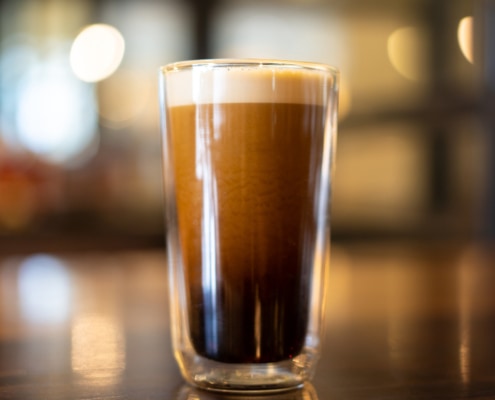 https://www.siamhillscoffee.com/wp-content/uploads/Beer-Coffee-Everybodys-Dream-Come-True-–-1.jpg
1414
2121
Siamhillscoffee
https://www.siamhillscoffee.com/wp-content/uploads/coffee-logo.png
Siamhillscoffee2021-03-14 03:21:082021-03-14 03:21:08Beer Coffee – Everybody’s Dream Come True –
https://www.siamhillscoffee.com/wp-content/uploads/Beer-Coffee-Everybodys-Dream-Come-True-–-1.jpg
1414
2121
Siamhillscoffee
https://www.siamhillscoffee.com/wp-content/uploads/coffee-logo.png
Siamhillscoffee2021-03-14 03:21:082021-03-14 03:21:08Beer Coffee – Everybody’s Dream Come True –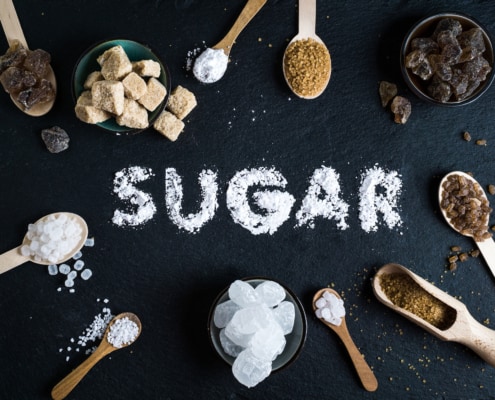 https://www.siamhillscoffee.com/wp-content/uploads/Natural-Coffee-Sweeteners-–-Best-Natural-Sugar-Substitutes-For-You-–-1.jpg
1502
1997
Siamhillscoffee
https://www.siamhillscoffee.com/wp-content/uploads/coffee-logo.png
Siamhillscoffee2021-02-20 05:43:182021-03-03 07:41:19Natural Coffee Sweeteners – Best Natural Sugar Substitutes For You –
https://www.siamhillscoffee.com/wp-content/uploads/Natural-Coffee-Sweeteners-–-Best-Natural-Sugar-Substitutes-For-You-–-1.jpg
1502
1997
Siamhillscoffee
https://www.siamhillscoffee.com/wp-content/uploads/coffee-logo.png
Siamhillscoffee2021-02-20 05:43:182021-03-03 07:41:19Natural Coffee Sweeteners – Best Natural Sugar Substitutes For You –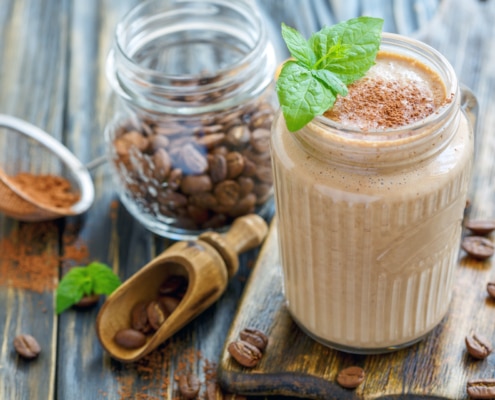 https://www.siamhillscoffee.com/wp-content/uploads/10-Best-Coffee-Smoothie-Recipes-–-Your-Perfectly-Delicious-Morning-Buzz-–-1-scaled.jpg
1707
2560
Siamhillscoffee
https://www.siamhillscoffee.com/wp-content/uploads/coffee-logo.png
Siamhillscoffee2021-02-20 05:32:312021-03-03 10:45:5410 Best Coffee Smoothie Recipes – Perfectly Delicious Morning Buzz –
https://www.siamhillscoffee.com/wp-content/uploads/10-Best-Coffee-Smoothie-Recipes-–-Your-Perfectly-Delicious-Morning-Buzz-–-1-scaled.jpg
1707
2560
Siamhillscoffee
https://www.siamhillscoffee.com/wp-content/uploads/coffee-logo.png
Siamhillscoffee2021-02-20 05:32:312021-03-03 10:45:5410 Best Coffee Smoothie Recipes – Perfectly Delicious Morning Buzz –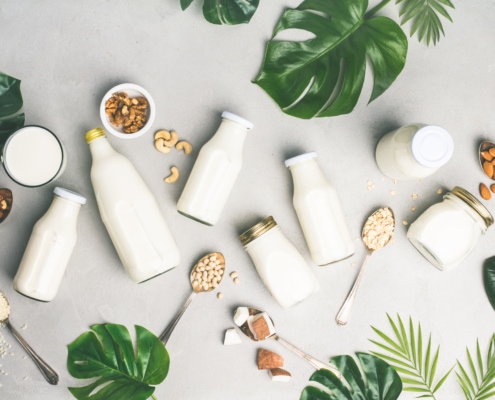 https://www.siamhillscoffee.com/wp-content/uploads/Great-Milk-Alternatives-–-Your-9-Best-Nondairy-Substitutes-for-Milk-–-1-scaled.jpg
1707
2560
Siamhillscoffee
https://www.siamhillscoffee.com/wp-content/uploads/coffee-logo.png
Siamhillscoffee2021-02-20 05:26:492021-03-03 10:47:18Great Milk Alternatives – Your 9 Best Nondairy Substitutes for Milk –
https://www.siamhillscoffee.com/wp-content/uploads/Great-Milk-Alternatives-–-Your-9-Best-Nondairy-Substitutes-for-Milk-–-1-scaled.jpg
1707
2560
Siamhillscoffee
https://www.siamhillscoffee.com/wp-content/uploads/coffee-logo.png
Siamhillscoffee2021-02-20 05:26:492021-03-03 10:47:18Great Milk Alternatives – Your 9 Best Nondairy Substitutes for Milk –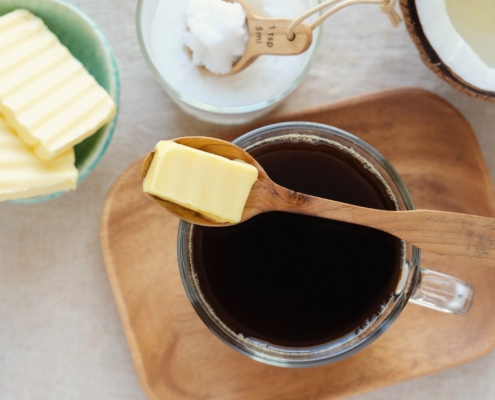 https://www.siamhillscoffee.com/wp-content/uploads/Butter-Coffee-Myths-versus-Facts-–-1.jpg
1414
2121
Siamhillscoffee
https://www.siamhillscoffee.com/wp-content/uploads/coffee-logo.png
Siamhillscoffee2021-02-20 05:14:182021-03-03 10:50:40Butter Coffee – Myths versus Facts –
https://www.siamhillscoffee.com/wp-content/uploads/Butter-Coffee-Myths-versus-Facts-–-1.jpg
1414
2121
Siamhillscoffee
https://www.siamhillscoffee.com/wp-content/uploads/coffee-logo.png
Siamhillscoffee2021-02-20 05:14:182021-03-03 10:50:40Butter Coffee – Myths versus Facts –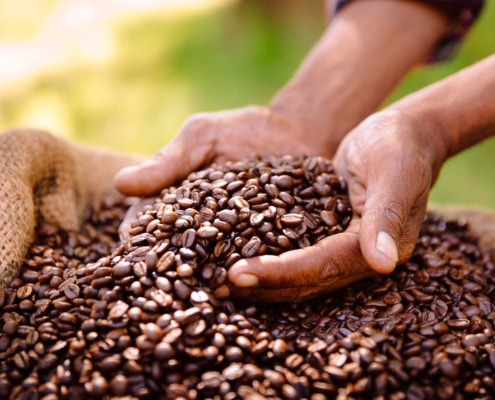 https://www.siamhillscoffee.com/wp-content/uploads/What-is-Specialty-Coffee-–-Everything-You-Need-to-Know-–-1-1.jpg
1414
2121
Siamhillscoffee
https://www.siamhillscoffee.com/wp-content/uploads/coffee-logo.png
Siamhillscoffee2021-02-20 05:10:372021-03-03 10:51:58What is Specialty Coffee? – Everything You Need to Know –
https://www.siamhillscoffee.com/wp-content/uploads/What-is-Specialty-Coffee-–-Everything-You-Need-to-Know-–-1-1.jpg
1414
2121
Siamhillscoffee
https://www.siamhillscoffee.com/wp-content/uploads/coffee-logo.png
Siamhillscoffee2021-02-20 05:10:372021-03-03 10:51:58What is Specialty Coffee? – Everything You Need to Know –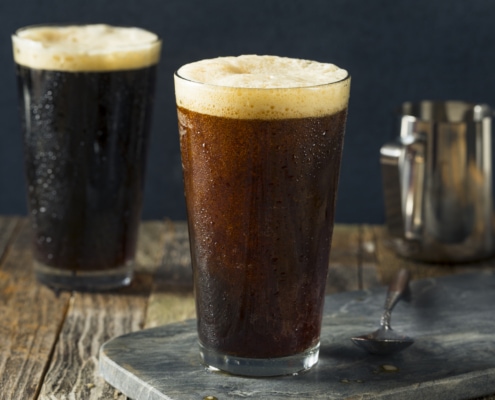 https://www.siamhillscoffee.com/wp-content/uploads/Nitro-Coffee-The-New-Big-Coffee-Trend-–-1.jpg
1414
2121
Siamhillscoffee
https://www.siamhillscoffee.com/wp-content/uploads/coffee-logo.png
Siamhillscoffee2021-02-20 05:03:032021-03-03 10:53:11Nitro Coffee – The New Big Coffee Trend –
https://www.siamhillscoffee.com/wp-content/uploads/Nitro-Coffee-The-New-Big-Coffee-Trend-–-1.jpg
1414
2121
Siamhillscoffee
https://www.siamhillscoffee.com/wp-content/uploads/coffee-logo.png
Siamhillscoffee2021-02-20 05:03:032021-03-03 10:53:11Nitro Coffee – The New Big Coffee Trend – https://www.siamhillscoffee.com/wp-content/uploads/What-is-a-Cafe-Cubano-–-A-Complete-Guide-–-1.jpg
1414
2121
Siamhillscoffee
https://www.siamhillscoffee.com/wp-content/uploads/coffee-logo.png
Siamhillscoffee2021-02-20 04:57:432021-03-03 10:54:47What is a Cafe Cubano – A Complete Guide –
https://www.siamhillscoffee.com/wp-content/uploads/What-is-a-Cafe-Cubano-–-A-Complete-Guide-–-1.jpg
1414
2121
Siamhillscoffee
https://www.siamhillscoffee.com/wp-content/uploads/coffee-logo.png
Siamhillscoffee2021-02-20 04:57:432021-03-03 10:54:47What is a Cafe Cubano – A Complete Guide – https://www.siamhillscoffee.com/wp-content/uploads/Espresso-and-Coffee-–-Whats-the-Difference-–-1.jpg
1414
2121
Siamhillscoffee
https://www.siamhillscoffee.com/wp-content/uploads/coffee-logo.png
Siamhillscoffee2021-02-20 04:52:232021-03-03 10:56:00Espresso and Coffee – What’s the Difference? –
https://www.siamhillscoffee.com/wp-content/uploads/Espresso-and-Coffee-–-Whats-the-Difference-–-1.jpg
1414
2121
Siamhillscoffee
https://www.siamhillscoffee.com/wp-content/uploads/coffee-logo.png
Siamhillscoffee2021-02-20 04:52:232021-03-03 10:56:00Espresso and Coffee – What’s the Difference? – https://www.siamhillscoffee.com/wp-content/uploads/What-is-a-Cortado-–-A-Complete-Overview-–-1-scaled.jpg
1707
2560
Siamhillscoffee
https://www.siamhillscoffee.com/wp-content/uploads/coffee-logo.png
Siamhillscoffee2021-02-12 08:02:382021-03-03 11:00:15What is a Cortado? – A Complete Overview –
https://www.siamhillscoffee.com/wp-content/uploads/What-is-a-Cortado-–-A-Complete-Overview-–-1-scaled.jpg
1707
2560
Siamhillscoffee
https://www.siamhillscoffee.com/wp-content/uploads/coffee-logo.png
Siamhillscoffee2021-02-12 08:02:382021-03-03 11:00:15What is a Cortado? – A Complete Overview – https://www.siamhillscoffee.com/wp-content/uploads/Decaf-Coffee-–-Is-Decaffeinated-Coffee-Good-or-Bad-–-1.jpg
1415
2120
Siamhillscoffee
https://www.siamhillscoffee.com/wp-content/uploads/coffee-logo.png
Siamhillscoffee2021-02-12 07:57:572021-03-03 11:01:42Decaf Coffee – Is Decaffeinated Coffee Good or Bad? –
https://www.siamhillscoffee.com/wp-content/uploads/Decaf-Coffee-–-Is-Decaffeinated-Coffee-Good-or-Bad-–-1.jpg
1415
2120
Siamhillscoffee
https://www.siamhillscoffee.com/wp-content/uploads/coffee-logo.png
Siamhillscoffee2021-02-12 07:57:572021-03-03 11:01:42Decaf Coffee – Is Decaffeinated Coffee Good or Bad? –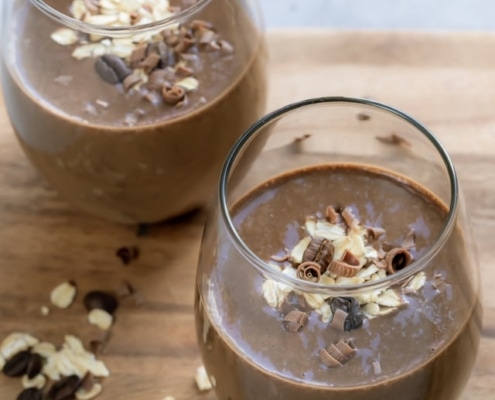 https://www.siamhillscoffee.com/wp-content/uploads/10-Best-Coffee-Protein-Shakes-–-Make-Your-Morning-Better-–-1.jpg
960
640
Siamhillscoffee
https://www.siamhillscoffee.com/wp-content/uploads/coffee-logo.png
Siamhillscoffee2021-02-12 07:48:282021-03-03 11:04:1910 Best Coffee Protein Shakes – Make Your Morning Better –
https://www.siamhillscoffee.com/wp-content/uploads/10-Best-Coffee-Protein-Shakes-–-Make-Your-Morning-Better-–-1.jpg
960
640
Siamhillscoffee
https://www.siamhillscoffee.com/wp-content/uploads/coffee-logo.png
Siamhillscoffee2021-02-12 07:48:282021-03-03 11:04:1910 Best Coffee Protein Shakes – Make Your Morning Better –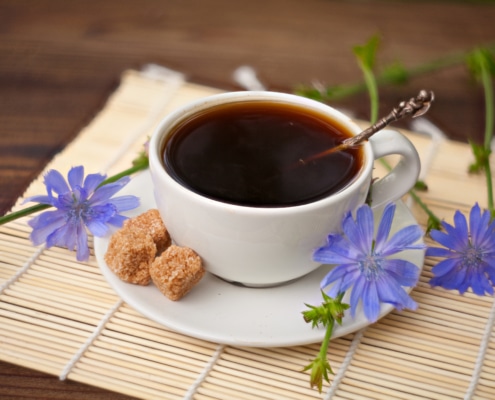 https://www.siamhillscoffee.com/wp-content/uploads/What-is-Chicory-Coffee-–-A-Healthy-Alternative-to-Coffee-or-Not-–-1-scaled.jpg
1747
2560
Siamhillscoffee
https://www.siamhillscoffee.com/wp-content/uploads/coffee-logo.png
Siamhillscoffee2021-02-12 07:37:062021-03-03 11:06:59What is Chicory Coffee? – A Healthy Alternative to Coffee or Not –
https://www.siamhillscoffee.com/wp-content/uploads/What-is-Chicory-Coffee-–-A-Healthy-Alternative-to-Coffee-or-Not-–-1-scaled.jpg
1747
2560
Siamhillscoffee
https://www.siamhillscoffee.com/wp-content/uploads/coffee-logo.png
Siamhillscoffee2021-02-12 07:37:062021-03-03 11:06:59What is Chicory Coffee? – A Healthy Alternative to Coffee or Not –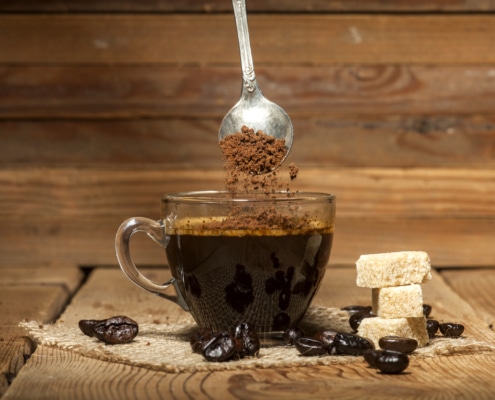 https://www.siamhillscoffee.com/wp-content/uploads/Instant-Coffee-and-Ground-Coffee-–-Which-is-Better-–-1.jpg
1250
2399
Siamhillscoffee
https://www.siamhillscoffee.com/wp-content/uploads/coffee-logo.png
Siamhillscoffee2021-02-12 07:27:432021-03-03 11:09:42Instant Coffee and Ground Coffee – Which is Better? –
https://www.siamhillscoffee.com/wp-content/uploads/Instant-Coffee-and-Ground-Coffee-–-Which-is-Better-–-1.jpg
1250
2399
Siamhillscoffee
https://www.siamhillscoffee.com/wp-content/uploads/coffee-logo.png
Siamhillscoffee2021-02-12 07:27:432021-03-03 11:09:42Instant Coffee and Ground Coffee – Which is Better? –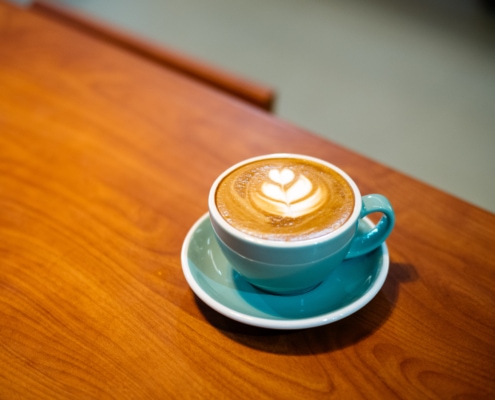 https://www.siamhillscoffee.com/wp-content/uploads/What-is-a-Flat-White-–-A-Complete-Guide-–-2.jpg
1414
2121
Siamhillscoffee
https://www.siamhillscoffee.com/wp-content/uploads/coffee-logo.png
Siamhillscoffee2021-02-12 07:21:312021-03-03 11:11:35What is a Flat White? – A Complete Guide –
https://www.siamhillscoffee.com/wp-content/uploads/What-is-a-Flat-White-–-A-Complete-Guide-–-2.jpg
1414
2121
Siamhillscoffee
https://www.siamhillscoffee.com/wp-content/uploads/coffee-logo.png
Siamhillscoffee2021-02-12 07:21:312021-03-03 11:11:35What is a Flat White? – A Complete Guide –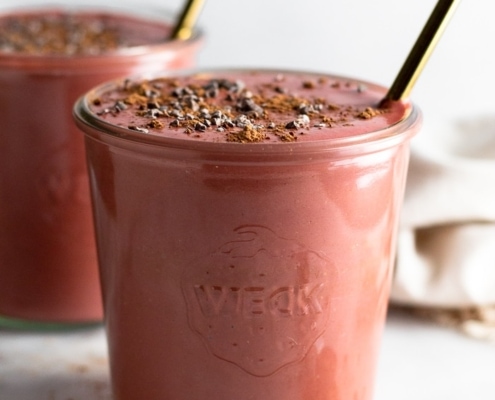 https://www.siamhillscoffee.com/wp-content/uploads/15-Great-Coffee-Breakfast-Smoothies-–-Simply-Delicious-Ways-to-Boost-Your-Morning-–14.jpg
1050
700
Siamhillscoffee
https://www.siamhillscoffee.com/wp-content/uploads/coffee-logo.png
Siamhillscoffee2021-02-12 06:52:492021-03-03 11:46:4615 Great Coffee Breakfast Smoothies – Delicious Ways to Boost Your Morning –
https://www.siamhillscoffee.com/wp-content/uploads/15-Great-Coffee-Breakfast-Smoothies-–-Simply-Delicious-Ways-to-Boost-Your-Morning-–14.jpg
1050
700
Siamhillscoffee
https://www.siamhillscoffee.com/wp-content/uploads/coffee-logo.png
Siamhillscoffee2021-02-12 06:52:492021-03-03 11:46:4615 Great Coffee Breakfast Smoothies – Delicious Ways to Boost Your Morning –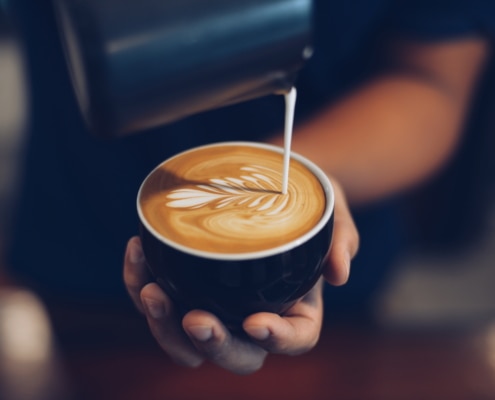 https://www.siamhillscoffee.com/wp-content/uploads/What-is-a-Cappuccino-–-A-Complete-Guide-–-1-scaled.jpg
1704
2560
Siamhillscoffee
https://www.siamhillscoffee.com/wp-content/uploads/coffee-logo.png
Siamhillscoffee2021-02-12 05:52:502021-03-03 11:51:41What is a Cappuccino? – A Complete Guide –
https://www.siamhillscoffee.com/wp-content/uploads/What-is-a-Cappuccino-–-A-Complete-Guide-–-1-scaled.jpg
1704
2560
Siamhillscoffee
https://www.siamhillscoffee.com/wp-content/uploads/coffee-logo.png
Siamhillscoffee2021-02-12 05:52:502021-03-03 11:51:41What is a Cappuccino? – A Complete Guide –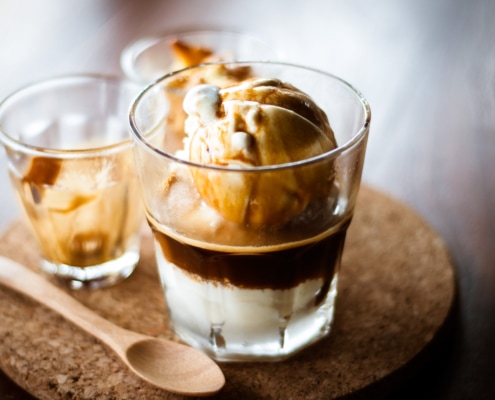 https://www.siamhillscoffee.com/wp-content/uploads/What-is-an-Affogato-–-A-Complete-Guide-–-1-scaled.jpg
1700
2560
Siamhillscoffee
https://www.siamhillscoffee.com/wp-content/uploads/coffee-logo.png
Siamhillscoffee2021-02-12 05:24:302021-03-03 11:58:41What is an Affogato? – A Complete Guide –
https://www.siamhillscoffee.com/wp-content/uploads/What-is-an-Affogato-–-A-Complete-Guide-–-1-scaled.jpg
1700
2560
Siamhillscoffee
https://www.siamhillscoffee.com/wp-content/uploads/coffee-logo.png
Siamhillscoffee2021-02-12 05:24:302021-03-03 11:58:41What is an Affogato? – A Complete Guide –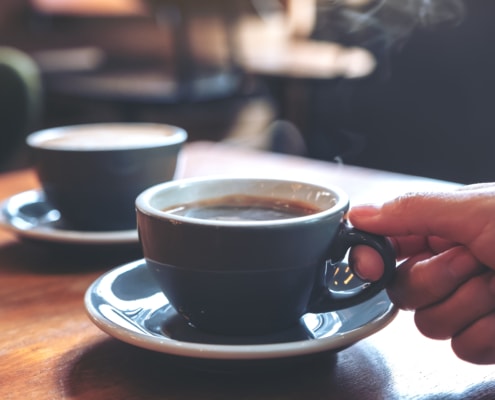 https://www.siamhillscoffee.com/wp-content/uploads/What-is-an-Americano-–-A-Complete-Guide-–-1-scaled.jpg
1707
2560
Siamhillscoffee
https://www.siamhillscoffee.com/wp-content/uploads/coffee-logo.png
Siamhillscoffee2021-02-12 05:20:142021-03-03 12:00:35What is an Americano – A Complete Guide –
https://www.siamhillscoffee.com/wp-content/uploads/What-is-an-Americano-–-A-Complete-Guide-–-1-scaled.jpg
1707
2560
Siamhillscoffee
https://www.siamhillscoffee.com/wp-content/uploads/coffee-logo.png
Siamhillscoffee2021-02-12 05:20:142021-03-03 12:00:35What is an Americano – A Complete Guide –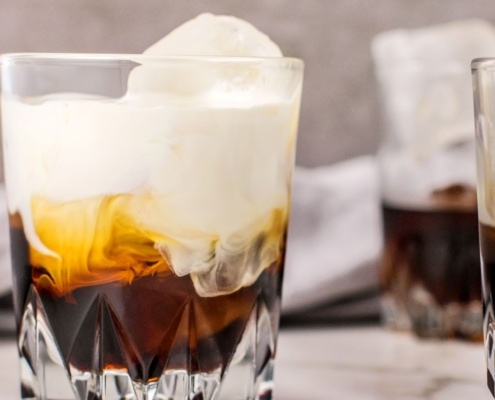 https://www.siamhillscoffee.com/wp-content/uploads/15-Best-Iced-Coffee-Recipes-–-Your-Perfectly-Refreshing-Boost-and-Buzz-–-5-scaled.jpg
1440
2560
Siamhillscoffee
https://www.siamhillscoffee.com/wp-content/uploads/coffee-logo.png
Siamhillscoffee2021-02-12 05:00:102021-03-03 12:05:3015 Best Iced Coffee Recipes – Your Perfectly Refreshing Boost and Buzz –
https://www.siamhillscoffee.com/wp-content/uploads/15-Best-Iced-Coffee-Recipes-–-Your-Perfectly-Refreshing-Boost-and-Buzz-–-5-scaled.jpg
1440
2560
Siamhillscoffee
https://www.siamhillscoffee.com/wp-content/uploads/coffee-logo.png
Siamhillscoffee2021-02-12 05:00:102021-03-03 12:05:3015 Best Iced Coffee Recipes – Your Perfectly Refreshing Boost and Buzz –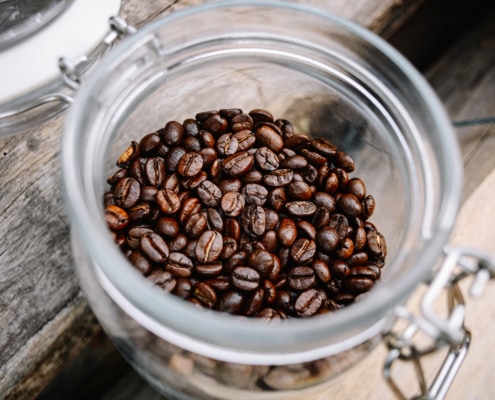 https://www.siamhillscoffee.com/wp-content/uploads/What-is-Robusta-Coffee-–Top-10-Robusta-vs.-Arabica-Differences-–-1-scaled.jpg
1696
2560
Siamhillscoffee
https://www.siamhillscoffee.com/wp-content/uploads/coffee-logo.png
Siamhillscoffee2021-02-12 04:50:162021-03-03 12:07:04What is Robusta Coffee? –Top 10 Robusta vs. Arabica Differences –
https://www.siamhillscoffee.com/wp-content/uploads/What-is-Robusta-Coffee-–Top-10-Robusta-vs.-Arabica-Differences-–-1-scaled.jpg
1696
2560
Siamhillscoffee
https://www.siamhillscoffee.com/wp-content/uploads/coffee-logo.png
Siamhillscoffee2021-02-12 04:50:162021-03-03 12:07:04What is Robusta Coffee? –Top 10 Robusta vs. Arabica Differences –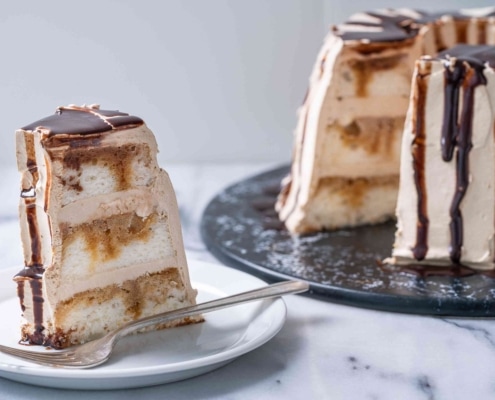 https://www.siamhillscoffee.com/wp-content/uploads/20-Best-Coffee-Dessert-Recipes-–-Your-Perfectly-Delicious-Coffee-Treat-–-1-scaled.jpg
1708
2560
Siamhillscoffee
https://www.siamhillscoffee.com/wp-content/uploads/coffee-logo.png
Siamhillscoffee2021-02-12 04:13:312021-03-03 12:17:1120 Best Coffee Dessert Recipes – Your Perfectly Delicious Coffee Treat –
https://www.siamhillscoffee.com/wp-content/uploads/20-Best-Coffee-Dessert-Recipes-–-Your-Perfectly-Delicious-Coffee-Treat-–-1-scaled.jpg
1708
2560
Siamhillscoffee
https://www.siamhillscoffee.com/wp-content/uploads/coffee-logo.png
Siamhillscoffee2021-02-12 04:13:312021-03-03 12:17:1120 Best Coffee Dessert Recipes – Your Perfectly Delicious Coffee Treat –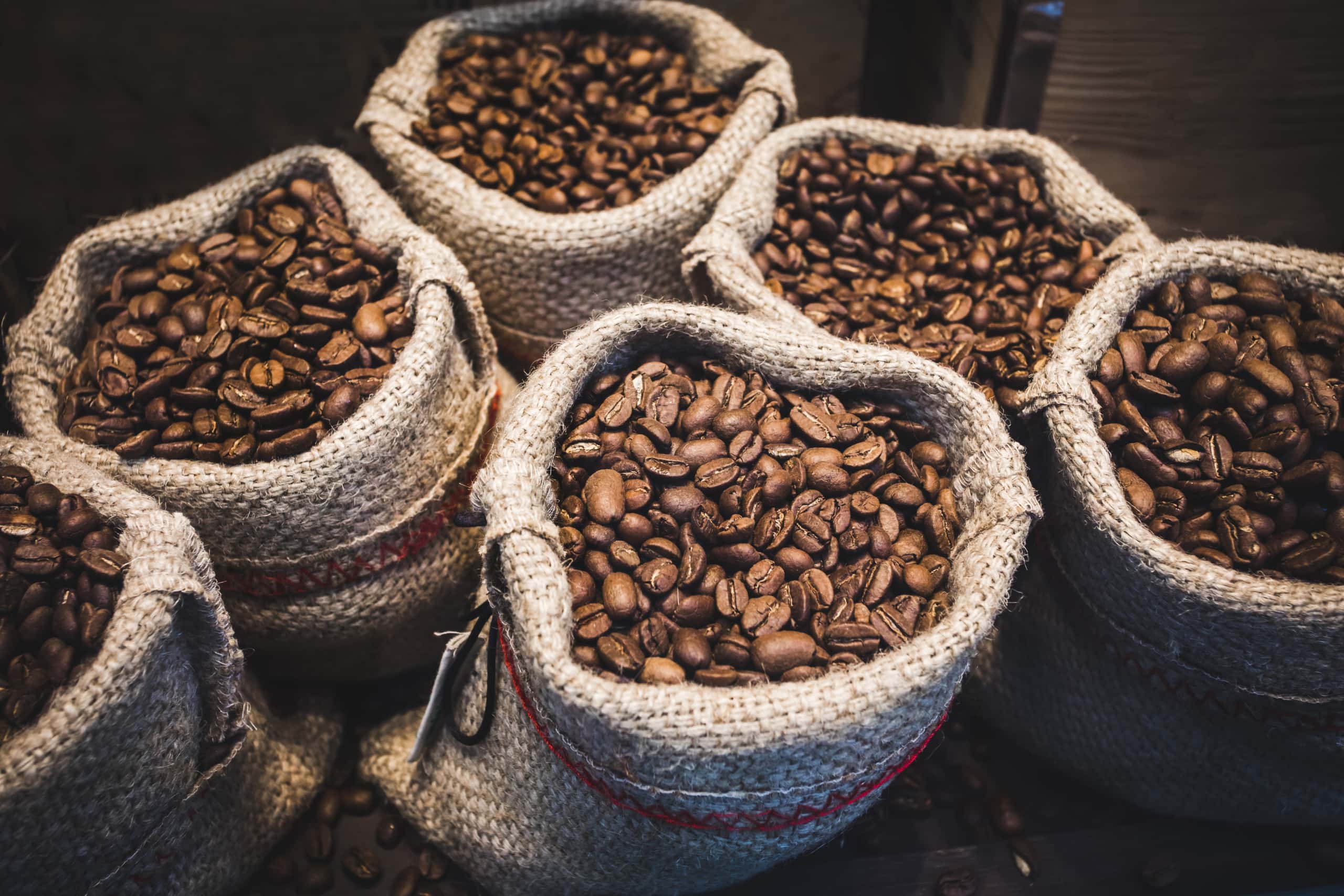 https://www.siamhillscoffee.com/wp-content/uploads/Arabica-and-Robusta-Coffee-–Top-10-Arabica-vs.-Robusta-Differences-–-1-scaled.jpg
1707
2560
Siamhillscoffee
https://www.siamhillscoffee.com/wp-content/uploads/coffee-logo.png
Siamhillscoffee2021-02-12 04:00:402021-03-03 12:21:42Arabica and Robusta Coffee –Top 10 Arabica vs. Robusta Differences –
https://www.siamhillscoffee.com/wp-content/uploads/Arabica-and-Robusta-Coffee-–Top-10-Arabica-vs.-Robusta-Differences-–-1-scaled.jpg
1707
2560
Siamhillscoffee
https://www.siamhillscoffee.com/wp-content/uploads/coffee-logo.png
Siamhillscoffee2021-02-12 04:00:402021-03-03 12:21:42Arabica and Robusta Coffee –Top 10 Arabica vs. Robusta Differences –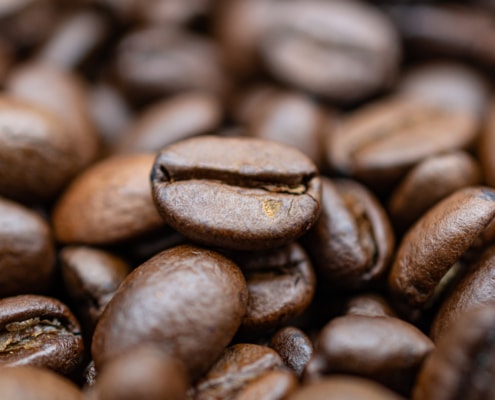 https://www.siamhillscoffee.com/wp-content/uploads/What-is-Arabica-Coffee-–Top-10-Arabica-vs.-Robusta-Differences-–-1-scaled.jpg
1820
2560
Siamhillscoffee
https://www.siamhillscoffee.com/wp-content/uploads/coffee-logo.png
Siamhillscoffee2021-02-12 03:36:062021-03-03 12:30:45What is Arabica Coffee? –Top 10 Arabica vs. Robusta Differences –
https://www.siamhillscoffee.com/wp-content/uploads/What-is-Arabica-Coffee-–Top-10-Arabica-vs.-Robusta-Differences-–-1-scaled.jpg
1820
2560
Siamhillscoffee
https://www.siamhillscoffee.com/wp-content/uploads/coffee-logo.png
Siamhillscoffee2021-02-12 03:36:062021-03-03 12:30:45What is Arabica Coffee? –Top 10 Arabica vs. Robusta Differences – https://www.siamhillscoffee.com/wp-content/uploads/Top-10-Best-Coffee-Drinks-in-the-World-Most-Consumed-Worldwide-–-1.jpg
1414
2121
Siamhillscoffee
https://www.siamhillscoffee.com/wp-content/uploads/coffee-logo.png
Siamhillscoffee2021-02-12 03:22:582021-03-03 12:33:14Top 10 Best Coffee Drinks in the World – Most Consumed Worldwide –
https://www.siamhillscoffee.com/wp-content/uploads/Top-10-Best-Coffee-Drinks-in-the-World-Most-Consumed-Worldwide-–-1.jpg
1414
2121
Siamhillscoffee
https://www.siamhillscoffee.com/wp-content/uploads/coffee-logo.png
Siamhillscoffee2021-02-12 03:22:582021-03-03 12:33:14Top 10 Best Coffee Drinks in the World – Most Consumed Worldwide –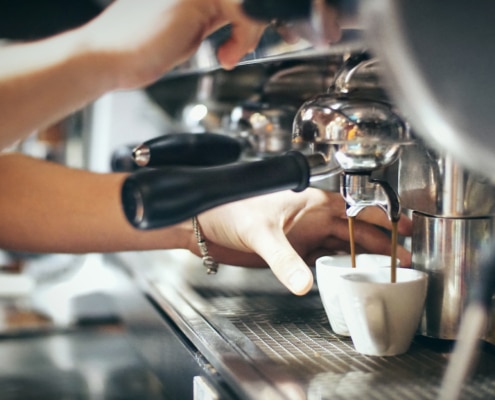 https://www.siamhillscoffee.com/wp-content/uploads/Top-10-Most-Popular-Espresso-Drinks-A-Complete-Overview-–-1.jpg
1392
2154
Siamhillscoffee
https://www.siamhillscoffee.com/wp-content/uploads/coffee-logo.png
Siamhillscoffee2021-02-12 03:15:472021-03-03 12:35:06Top 10 Most Popular Espresso Drinks – A Complete Overview –
https://www.siamhillscoffee.com/wp-content/uploads/Top-10-Most-Popular-Espresso-Drinks-A-Complete-Overview-–-1.jpg
1392
2154
Siamhillscoffee
https://www.siamhillscoffee.com/wp-content/uploads/coffee-logo.png
Siamhillscoffee2021-02-12 03:15:472021-03-03 12:35:06Top 10 Most Popular Espresso Drinks – A Complete Overview – https://www.siamhillscoffee.com/wp-content/uploads/20-Best-Barista-Coffee-Recipes-–-Your-Perfectly-Delicious-Coffee-Treat-–-9-scaled.jpg
1707
2560
Siamhillscoffee
https://www.siamhillscoffee.com/wp-content/uploads/coffee-logo.png
Siamhillscoffee2021-02-12 02:51:302021-02-20 14:07:0420 Best Barista Coffee Recipes – Your Perfectly Delicious Coffee Treat –
https://www.siamhillscoffee.com/wp-content/uploads/20-Best-Barista-Coffee-Recipes-–-Your-Perfectly-Delicious-Coffee-Treat-–-9-scaled.jpg
1707
2560
Siamhillscoffee
https://www.siamhillscoffee.com/wp-content/uploads/coffee-logo.png
Siamhillscoffee2021-02-12 02:51:302021-02-20 14:07:0420 Best Barista Coffee Recipes – Your Perfectly Delicious Coffee Treat –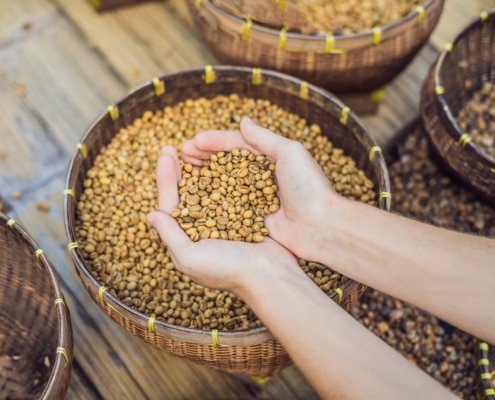 https://www.siamhillscoffee.com/wp-content/uploads/Kopi_Luwak_Coffee_The_Most_Expensive_Coffee_An_Honest_Opinion-4.jpg
1414
2121
Siamhillscoffee
https://www.siamhillscoffee.com/wp-content/uploads/coffee-logo.png
Siamhillscoffee2020-03-08 13:43:142021-03-03 13:34:22Kopi Luwak Coffee – The Most Expensive Coffee – An Honest Opinion
https://www.siamhillscoffee.com/wp-content/uploads/Kopi_Luwak_Coffee_The_Most_Expensive_Coffee_An_Honest_Opinion-4.jpg
1414
2121
Siamhillscoffee
https://www.siamhillscoffee.com/wp-content/uploads/coffee-logo.png
Siamhillscoffee2020-03-08 13:43:142021-03-03 13:34:22Kopi Luwak Coffee – The Most Expensive Coffee – An Honest Opinion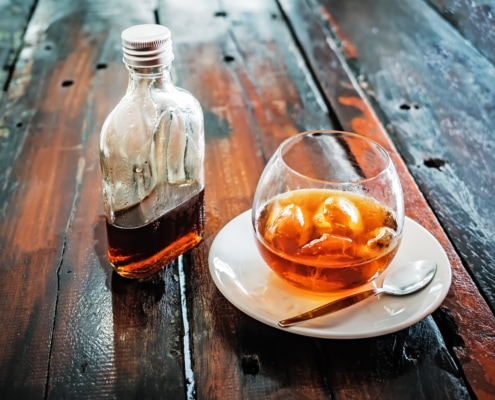 https://www.siamhillscoffee.com/wp-content/uploads/Cold_Brew_Coffee_An_Honest_Opinion_All_You_Need_To_Know_1.jpg
3144
4608
Siamhillscoffee
https://www.siamhillscoffee.com/wp-content/uploads/coffee-logo.png
Siamhillscoffee2019-11-06 05:01:152021-03-03 13:30:17Cold Brew Coffee – An Honest Opinion – All You Need to Know
https://www.siamhillscoffee.com/wp-content/uploads/Cold_Brew_Coffee_An_Honest_Opinion_All_You_Need_To_Know_1.jpg
3144
4608
Siamhillscoffee
https://www.siamhillscoffee.com/wp-content/uploads/coffee-logo.png
Siamhillscoffee2019-11-06 05:01:152021-03-03 13:30:17Cold Brew Coffee – An Honest Opinion – All You Need to Know
